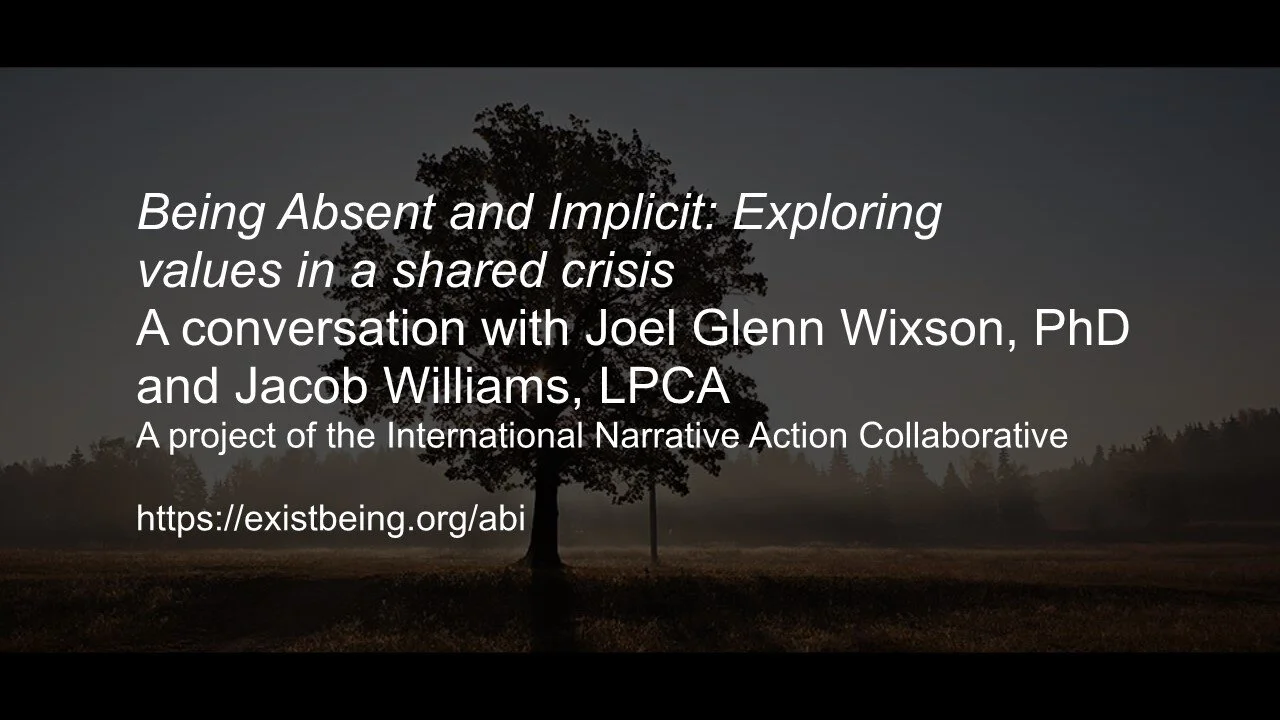Being Absent and Implicit: Joel Glenn Wixson, PsyD
AnID Doc: Identifying themes
Dear Joel,
Within our discussion, you talked about your early experiences as a therapist. You mentioned the “distance” you felt between you and your clients while working at Harvard as an extension of “the expert position”. This struck me because of the way you described your feelings at the end of every day (“I went home and cried”). I was struck by the importance your statements seem to place on intimacy within your client relationship or the importance of personal connections.
After working at Harvard, you spoke about your work with people experiencing homelessness in Cambridge. I noticed the way you explained your view of marginalization within Cambridge. You described people there as having been in Cambridge longer than you had. In many cases, people had grown up in Cambridge. That brought me to think about connections to community, which seemed important in the way you framed your work in Cambridge.
Personal connections and communal connections are also important to me. Our conversation left me with some follow-up questions:
What do you mean by expert position and distance?
What have the effects of the expert position been for you?
What does others’ view of you as expert mean to you?
Joel was my professor at Lesley University. I attended his Narrative Therapy course (and the Absent but Implicit. In class, I noticed that Joel framed these ideas as a way to break down power in the therapy room and within communities. I was inspired to participate in the International Narrative Collaboration to support the spread of these ideas outside of the professional community of therapists. I believe that while professional therapy can be helpful, healing can also be accomplished by creating community based on shared safety, values, goals, and dreams. It is my hope that this project creates a dialogue between people to identify these values against the backdrop of the global COVID-19 crisis in which we all share.

